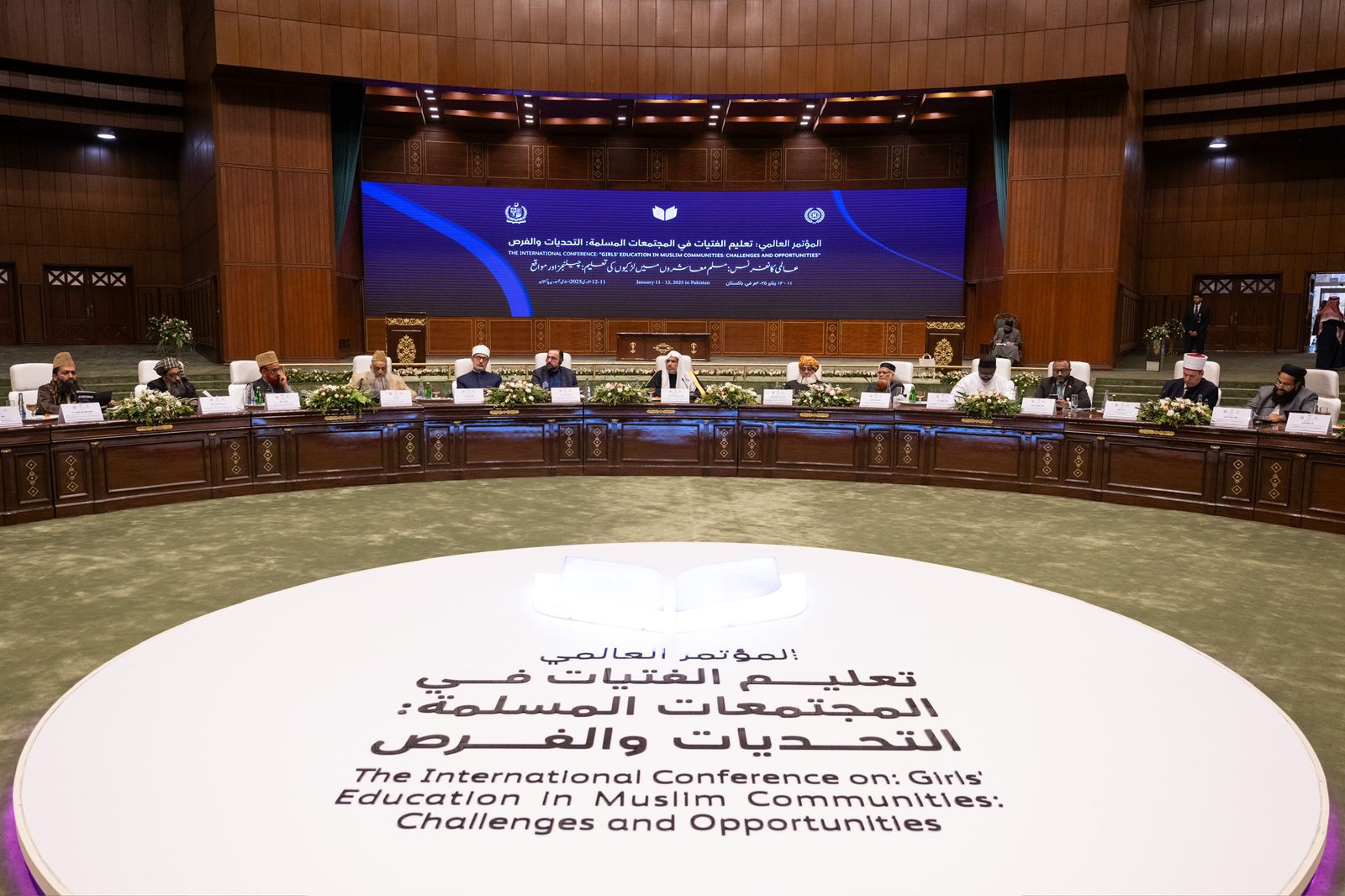
The Scholarly Session of the Initiative for "Girls' Education in Muslim Communities: Challenges and Opportunities" Emphasizes the Islamic Consensus, both “Past” and “Present,” on Women’s Legitimate Right to Education
In the presence of representatives from jurisprudential academies, Sharia councils, committees, and a gathering of Muftis and senior scholars from various Islamic sects and schools:
The Scholarly Session of the Initiative for "Girls' Education in Muslim Communities: Challenges and Opportunities" Emphasizes the Islamic Consensus, both “Past” and “Present,” on Women’s Legitimate Right to Education
A closed scholarly session of the initiative “Girls' Education in Muslim Communities: Challenges and Opportunities” was held in the capital of Pakistani, Islamabad, under the chairmanship of His Excellency the Secretary General of the Muslim World League, Chairman of the Organization of Muslim Scholars, Sheikh Dr. Muhammad bin Abdulkarim Al-Issa. The session was attended by representatives of jurisprudential academies, as well as members of Sharia councils, committees, and a blessed gathering of Muftis and senior Islamic scholars from various sects and schools of thought.
At the conclusion of the extensive scholarly dialogue, which lasted several hours, all participants unanimously affirmed—through enlightened jurisprudential reasoning—the Islamic consensus, both “past” and “present,” on women’s legitimate right to education. This consensus is rooted in the generality of Islamic texts addressing this matter, equating women with their male counterparts in this right without restricting it to a specific age, stage, or field of study, as long as it remains within the framework of Sharia and aligns with the unique nature and dignity bestowed upon women by Allah Almighty. It was also emphasized that this right is founded on the obligation of seeking knowledge for both genders, as guided by Islamic principles.
The discussion also addressed and refuted all misconceptions surrounding women’s education, whether “comprehensive” or “partial.” The scholars emphasized that their Sharia-based statement is directed to all individuals, institutions, and public and private entities in the Islamic world and minority countries, without targeting specific individuals, groups, or entities, in adherence to the guidance of Sharia regarding such statements.
The scholars’ remarks highlighted the significant principles related to the legitimate empowerment of women in general and their education in particular, as emphasized in the “Makkah Charter” and the “Document on Building Bridges Between Islamic Sects”—both of which were overseen by the gracious sponsorship of the Custodian of the Two Holy Mosques, King Salman bin Abdulaziz Al Saud (may Allah preserve him).
The scholars also extended their gratitude to the Muslim World League for its efforts in promoting Islamic awareness, strengthening the bonds of Islamic brotherhood, and fostering cooperation that embraces the diversity of scholarly perspectives, showcasing the breadth and tolerance of Islamic Sharia.
The participants recalled in this regard that the Muslim World League is one of the noble initiatives of the Kingdom of Saudi Arabia, established and gifted to the Islamic world to become an international organization dedicated to serving the affairs and issues of the Muslim Ummah in accordance with the provisions of its charter. They also commended the significant role of Saudi Arabia’s rightful Islamic leadership, its wise governance, and the guidance of its esteemed scholars.








